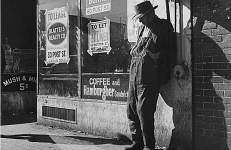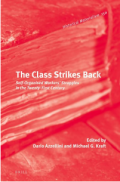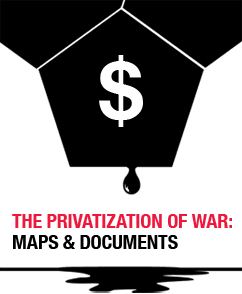Kapitalismus
Räte, Arbeiterkontrolle und Selbstverwaltung am Arbeitsplatz
Wir können auch anders
Die Forderung nach Wirtschaftsdemokratie war eine Initiative der Arbeiter- und Gewerkschaftsbewegung in den 1920er Jahren. In der Bundesrepublik wurde dieser Impuls vor allem in die unterschiedlichen Formen der Mitbestimmung in der verarbeitenden Industrie umgesetzt. Daneben gibt es die Praktiken der Genossenschaften, der Kooperativen und der Selbstverwaltung.
Talk at the Asia-Europe People’s Forum and transform! conference "Our Common Social Future," Barcelona, June 8-10, 2018 - 10 juni 2018
Commons and Conflict
Today, everyone is speaking about commons and ‘commoning’, everyone wants to build commons. The World Bank has a group which is supposedly ‘protecting and improving the global commons’ and it reaches out to the private sector to ‘advance common goods’. You can find texts on commons on the website of the European Union, banks organize seminars on the commons. Transnational companies tell us they are building the commons, big magazines declare that Uber is commoning cars, and that the “sharing economy” is a form of commoning.
Dario Azzellini at "Our common social future: Commoning and sharing for society, the environment and the economy. A program for a democratic, participatory and transformative social protection". Asia-Europe People's Forum, Barcelona, Catalonia, June 8-10, 2018
The case for commons and social commons
What are commons? Who can develop commons? Is commoning based on harmony?
Stiamo andando verso un altro crollo economico?
Non c'è dubbio che ci stiamo dirigendo verso un altro crollo economico, poiché il capitalismo è sempre diretto verso un altro crollo economico. È nella natura del capitalismo incrementare il capitale in eccesso e poi distruggerlo nuovamente attraverso crolli e guerre, al fine di far ripartire ancora una volta il processo di accumulazione. Dopo ogni crisi, come ci mostrano i dati storici, il ricco diventa più ricco e la concentrazione di capitale cresce. Da crollo a crollo, i cicli diventano più brevi e si accorciano via via che l'accumulazione di capitale in eccesso diventa più veloce.
¿Nos dirigimos hacia otra crisis económica?
Sin duda nos dirigimos a otra crisis económica. El capitalismo siempre se dirige a otra crisis económica. Es la naturaleza del capitalismo para aumentar el capital excedente para luego destruirlo de nuevo a través de una crisis o de la guerra, con el fin de reiniciar el proceso de acumulación, una vez más. Después de cada crisis, como muestran los datos históricos, los ricos se hacen más ricos y la concentración de capital crece.
Are we heading for another economic crash?

No doubt we are heading for another economic crash because capitalism is always heading for another economic crash. It is the nature of capitalism to increase surplus capital and then destroy it again through a crash or war, in order to restart the accumulation process once again. After every crisis, as historical data shows, the rich get richer and capital concentration grows. The cycles from crash to crash are becoming shorter as the accumulation of surplus capital becomes faster.
Self-Organised Workers’ Struggles in the Twenty-First Century
The Class Strikes Back
The Class Strikes Back examines a number of radical, twenty-first-century workers’ struggles. These struggles are characterised by a different kind of unionism and solidarity, arising out of new kinds of labour conditions and responsive to new kinds of social and economic marginalisation. The essays in the collection demonstrate the dramatic growth of syndicalist and autonomist formations and argue for their historical necessity.
Video & Audio:
Jak pracownicy przejmują kontrolę w dobie kryzysu kapitalizmu

W lutym 2016 roku kilkunastu byłych pracowników zakładu obróbki drewna w niewielkiej greckiej miejscowości Patrida, około 60 kilometrów od Salonik, powiedziało „Dość!”. Od 2008 roku byli oszukiwani przez właścicieli. Obiecując rychłą wypłatę, szefowie nie wypłacali pracownikom pełnej pensji, zredukowali godziny pracy i ogłosili upadłość firmy – nie informując o tym oficjalnie. Sytuacja nie poprawiła się, a pracownicy nigdy nie ujrzeli swoich pieniędzy. W grudniu 2015 roku zakład został zamknięty.
Recent years have seen a proliferation of recuperated workplaces around the globe, laying the foundations for a truly democratic workers’ economy.
Workers’ Control in the Crisis of Capitalism

In February 2016, a dozen former workers of a small woodworks plant in the small Greek town of Patrida, some 60 kilometers from Thessaloniki, had had enough. Since 2008 they had been tricked by the owners. With a promise to pay back everything soon, the bosses did not pay the workers their full salary anymore, reduced working hours and announced bankruptcy without making it official. But the situation never improved and the workers never saw their money. Finally, in December 2015, the plant closed.

























